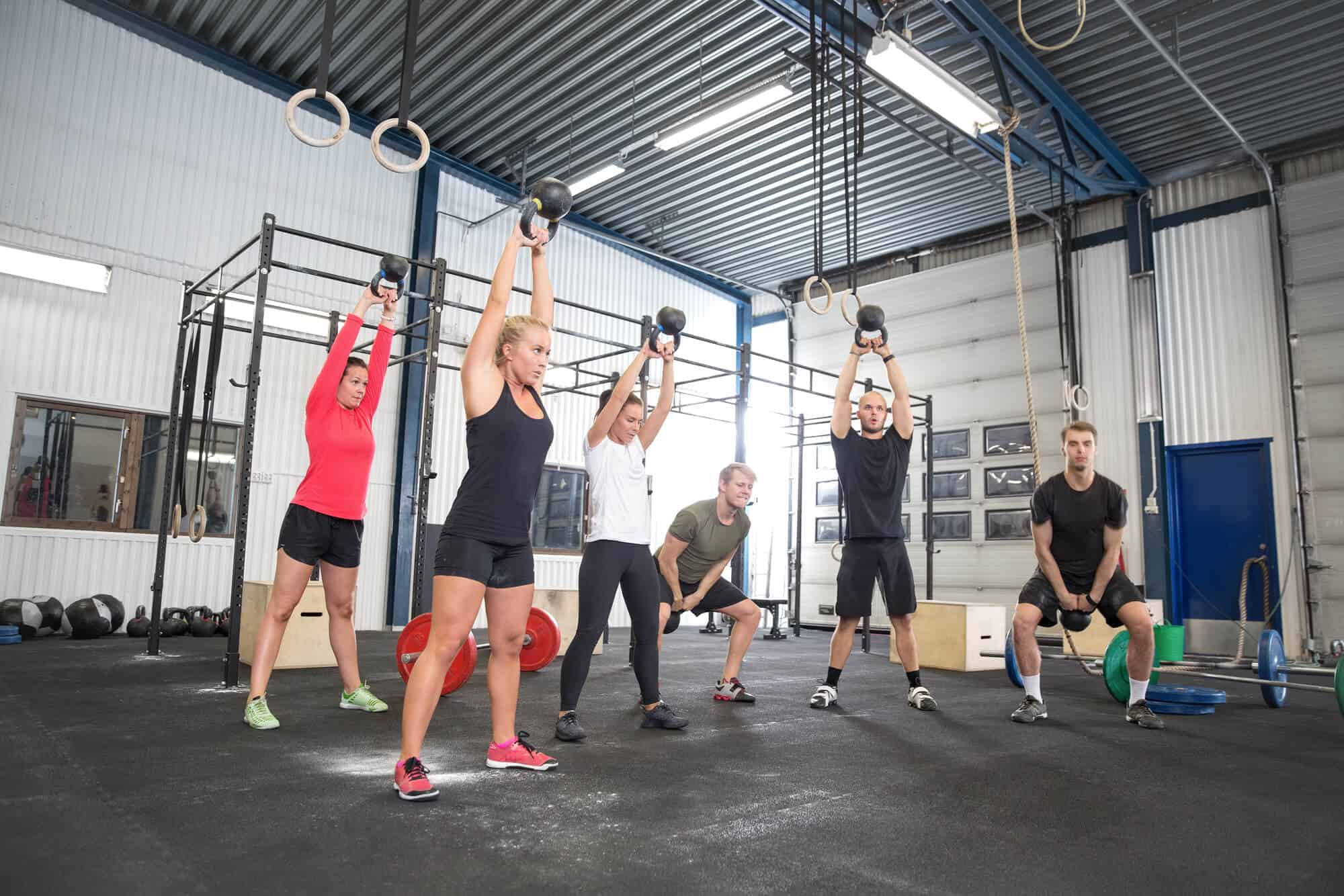When Should I Stop Lifting Before a Half Marathon
It’s common knowledge among athletes that runners should lift a bit of weight as they train.
Whether you’re running a simple competition, a marathon, or a half marathon, there’s always a good time to stop.
However, the question always remains, “When should I stop lifting before a half marathon?”
Read on for more information about the timing and benefits of incorporating weight lifting into your training.
When Should I Stop Lifting Before a Half Marathon
When it comes to lifting before a race, there are two factors to consider. The first is your body’s recovery and readiness to run the race.
The second is how to make the most out of your training.
If you work too hard, you may feel tired during the race. Therefore, you need to balance between lifting and running.
To achieve this balance and to answer the question, When Should I Stop Lifting Before a Half Marathon, cut out the lifting part of your training two weeks before your half-marathon.
Two weeks should give your body enough time to recover.
However, don’t worry, those two weeks won’t be sufficient to lose what you’ve already gained during your training cycle.
You should make sure that you don’t quit your Lifting Before a Half Marathon abruptly. You should rather do it gradually.
According to experts, your body recovers and is in its strongest form somewhere between five and ten days after you stop strength training.
This period right before your half-marathon is called a taper, which is a very common recovery technique among athletes.
While you gradually quit lifting two weeks before the big day, the lifting part itself stops altogether one week before as you follow a taper plan.
Your taper plan includes jogging and running for short miles. It also incorporates a lot of resting and even a massage.
After all, you’re helping your body recover from your hard workouts in order to restore its energy for the big day.
Why Do Runners Lift Weights And When Should I Stop Lifting Before a Half Marathon
So, why do runners lift weight in the first place? Below are a number of benefits that runners can gain if they incorporate strength training in their workouts.

1. Better Speed
Lifting helps increase your stride length, which results in a faster running speed.
This type of training gives you enough strength to put force into your stride. A more forceful stride covers a wider distance.
Moreover, the speed you gain through strength training makes you maintain a proper running form.
Most runners know that your feet should always be directly under your hips, which are your center of gravity.
However, some runners try to widen their strides wrongfully by reaching forward with their feet. This poor form would lead to injury.
2. More Running Economy
Running Economy (RE) is the energy demand for any given submaximal running velocity.
It’s usually determined by the measurement of the respiratory exchange ratio and the steady-state consumption of oxygen (VO2).
A good running economy allows you to consume less energy, and in turn, less oxygen—even while running with great velocity.
Some compare running economy to a car’s gas mileage. The better the gas mileage, the less fuel needed for traveling at high speeds.
With a greater running economy, you’ll be able to maintain your speed for longer and run further.
This means that you’ll be able to keep your pace for longer before feeling exhausted.
All of this translates to greater endurance during the race. In fact, studies have shown that strength training, in general, increases your running economy by about 4.6%.
3. Improved Resilience Against Injury
According to Runners Connect, about 79% of runners experience at least one injury every year. Weight lifting provides runners with increased resilience against injuries.
Injuries typically come from two main sources: overall structural weakness and structural imbalances. Both can be improved by any sort of strength training.
Your structure here refers to your muscles, bones, ligaments, and tendons. Therefore, a structural imbalance can be a severe weakness in any area of your body.
For example, if you have weak hips, you’re more likely to get knee injuries.
Strength training allows you to target your weakest muscles and strengthen them to the same level as your strong muscles.
During your training, your metabolic fitness increases, which drives you to move faster and harder.
However, this may lead to injury because usually your metabolic fitness is more than your structural strength.
This is because your ligaments, bones, tendons, and muscles lack the strength needed to reduce the physical stress you put on them.
Thus, when you lift, your resilience against injuries improves because lifting strengthens your structure in general.
6 Tips to Follow While Tapering
If done right, tapering can help you make the most of your long workouts. For the best results, follow these tips while tapering before a big event.
1. Don’t Train Too Much
A common mistake made by many first-time runners is to workout hard up to the day of the race. Such hard efforts in the last few weeks would mostly be counterproductive.
Exhausting yourself would drain your energy on your big day.
You should gradually decrease the amount of training, not the number of sessions. This means that you should decrease your mileage but not the number of runs.
You can reduce the distance and intervals within every session.
In other words, while tapering, you should focus more on quality rather than quantity. Shorter faster runs with reduced training distances will do just fine.
Remember, you shouldn’t stop lifting all at once. Take your time and do it gradually over the course of your tapering period.
2. Don’t Quit the Gym
Tapering doesn’t mean quitting your workout routine altogether. The easiest way to put it is that while tapering, you should concentrate on shorter and more intense workout sessions.
It’s still important to get some hard workout sessions in the last few weeks before your race.
These sessions will give your muscles the necessary strength and stimulation required for the big day.
The most effective tapering strategy for athletes incorporates reducing the training volume while maintaining the intensity.
3. Avoid Strength Training and Any Unfamiliar Exercise
You should avoid strength training of any kind during the week before your half marathon.
More importantly, you shouldn’t try any unfamiliar exercise because this may cause injury, sore muscles, or at least fatigue that lasts until the day of the race.
That said, you shouldn’t quit stretching and other types of exercises that you’re familiar with. Just cut back on the heavy work and avoid any new exercise during that last week.
Meditation is an exercise that has proven beneficial in several ways. It’s a good form of exercise to do a week before your half marathon to get rid of performance anxiety.
Meditation exercises prepare your mind for the mental demands of the race.
4. Sleep Well

Although sleeping is an essential element in every phase of your training, it’s especially important during the last week before your race.
Sleep can rebuild and regenerate your body after hard training. It’s common for a runner to experience difficulty sleeping the night before a half marathon due to race anxiety.
However, you should find a way to get some good sleep. Here are some tips to get some sleep during this last week:
- Take naps
- Sleep an hour earlier than you usually do
- Wake up one hour later than you regularly do
- Meditate if you have trouble sleeping and find yourself lying awake in bed
5. Take Good Care of Your Health
During the week before your half marathon, you need to take care of your diet and cut down on alcohol consumption.
You’ll notice during this period that you have a healthy appetite.
However, don’t give in to your sugar cravings, which may increase due to your anxiety before the event.
The week before your race is the best time to start eating like a real athlete.
This way, you can provide your body with the nutrients it requires to perform well.
The bottom line is that you shouldn’t try to lose weight during the week before your half marathon. However, you should still control your sugar intake.
Alcohol can also cause problems. It may be tempting to unwind with a drink or two. However, alcohol can cause dehydration and poor sleep.
6. Nothing New During the Week Before the Race
Stick to what you’ve tried before. Just like you shouldn’t try a new exercise, don’t go for any new equipment or gear.
Don’t try new running shoes, sports drinks, or any other nutritional elements. New shoes may cause injuries that can impair your performance.
Sports nutrition may cause GI problems or cramps that can also affect your performance.
It’s always a good idea to try everything out during the training period or a mock race in order to avoid any unpleasant surprises during the real race.
In a Nutshell
Strength training is vital for runners. It improves their structural balance and makes them less prone to injuries.
The question that almost every athlete asks is, “When should I stop lifting before a half marathon?”
You should gradually stop lifting before a half marathon or any sort of strength training two weeks before your event. You’d still do some training and running during this period, but not of the lifting sort.

